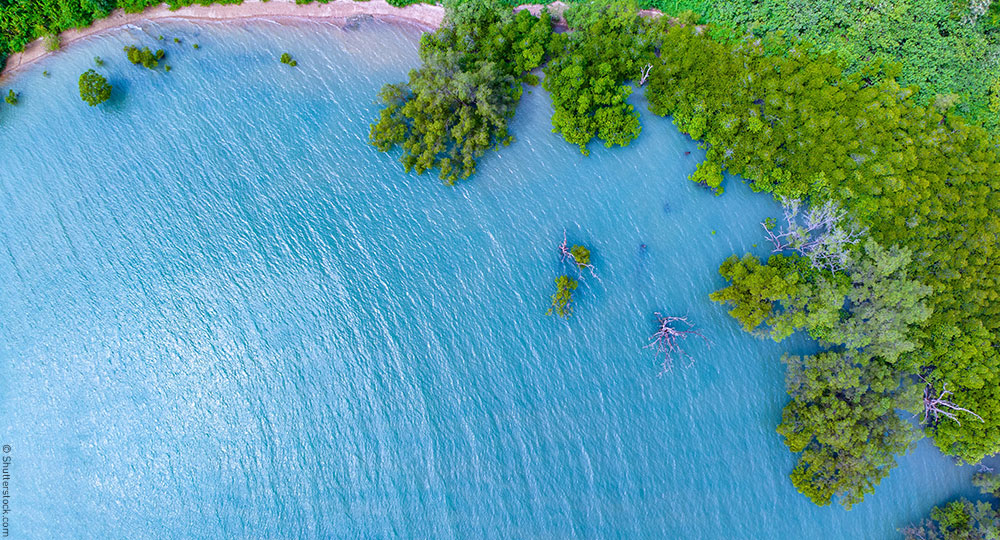Ocean Decade Capacity Development Facility
What is the Ocean Decade Capacity Development Facility?
The Ocean Decade Capacity Development Facility builds on the unique strengths and expertise of IOC-UNESCO in capacity development and provides a flexible and evolutive means of supporting the capacity development needs of individuals and institutions involved in the Ocean Decade.
The Capacity Development Facility works to identify and address capacity development needs of partners involved in current and future Ocean Decade Actions. Through this work, the Capacity Development Facility will serve to build connections between experts across the globe with a special emphasis on stimulating engagement and strengthening support to Small Island Developing States, Least Developed Countries, and Early Career Ocean Professionals.
The Ocean Decade Capacity Development is established with funding from the Flemish Government through the UNESCO/Flanders Fund-in-Trust (FUST).
How does it work?
The Capacity Development Facility supports actors wishing to engage in the co-design of future Decade Actions, as well as the existing Decade Actions who may require further support on targeted capacity development initiatives. This is achieved by:
- Identifying priority capacity development needs of existing and future proponents of Decade Actions
- Delivering initiatives to meet the identified capacity development needs via the Facility
- Supporting the facilitation of an Ocean Decade Community of Practice focusing on capacity development
The Capacity Development Facility also integrates specific activities to mobilize resources and establish partnerships with philanthropic partners, governments and industry to secure financial and in-kind contributions to operational costs and thus ensure its sustainability throughout the Ocean Decade and beyond.
How to get involved?
Email us for more information on how to get involved.
Contact: oceandecade@unesco.org
Meet the Steering Committee
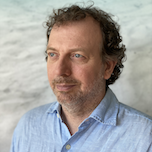
Francois Bailet, BSc (Environmental Sciences), Diplôme d’Étude Approfondies (Law and Economics of Development) and PhD (International Public Law) served as the late Elisabeth Mann Borgese’s Special Assistant for almost a decade until her passing in 2002. He was then appointed Deputy Executive Director of the International Ocean Institute Network (IOI), then Expert Advisor in Ocean Governance to the IOI, and Honorary Adviser to the President of IOI. After about a decade with the IOI, he assumed a post at the United Nations in 2004, within the Division for Ocean Affairs and the Law of the Sea (DOALOS), Office of Legal Affairs, where he now serves as Senior Legal Officer.
While with the IOI, Dr. Bailet’s main responsibilities included: capacity development academic education; and development/implementation of ocean law and policy frameworks at all levels of governance. He also represented the organization within numerous international, regional and national ocean law and policy processes, and at the United Nations.
Currently, Mr. Bailet is head of the Capacity-Building and Trust Funds Unit of DOALOS, and coordinates work on various topics including ocean governance, the blue economy and finance, the science-policy interface, and leads the United Nations’ marking of World Oceans Day.
For three decades, Dr. Bailet has served as a guest lecturer and speaker in numerous international conferences, academic courses and capacity development programmes world-wide, and has held Adjunct Professorships in Law as well as in Marine Affairs. He has also served on several Board of Directors and Advisory bodies of Foundations, Universities and Non-Governmental Organizations.
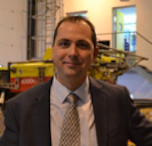
Alan Evans is the Alternate Head of the UK Delegation to the Intergovernmental Oceanographic Commission of UNESCO (IOC/UNESCO) and is Chair of the IOC Group of Experts on Capacity Development. During his tenure as Chair of this Group of Experts, Alan has supported the IOC’s capacity development efforts. This included undertaking regular capacity development needs assessment surveys, the development of the IOC Ocean InfoHub and the IOC Ocean CD-Hub and most recently oversaw the updating of the IOC Capacity Development Strategy, 2023-30 and its associated Outreach and Communications plan.
Alan has held a number of capacity development roles with other UN agencies, including as a member of the Advisory Panel of the ISA Endowment Fund for Marine Scientific Research (now Partnership Fund), a member of the ISA Women In Deep-Sea Research Project Advisory Committee and was Chair of the session on Key findings of the assessment of the Endowment Fund during the ISA International workshop on Capacity Development, Resources and Needs Assessment, 2020. Alan has supervised several fellows of the DOALOS-UN Nippon Foundation Fellowship programme and was also a member of the UK Delegation at the Biodiversity Beyond National Jurisdiction (BBNJ) Treaty Negotiations, where at IGC 5 he was the UK representative negotiating Part V of the Agreement on Capacity-Building and the Transfer of Marine Technology.
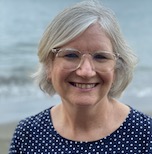
Christa von Hillebrandt-Andrade works for the US National Oceanic and Atmospheric Administration as the Deputy Director of the International Tsunami Information Center (ITIC) and Manager of its Caribbean Office in Mayagüez, Puerto Rico. For several decades she has been engaged in establishing and strengthening end to end early warning systems in Latin America and the Caribbean. Christa von Hillebrandt- Andrade is focused on advancing tsunami preparedness for and resilience to tsunamis in the US, the Caribbean and globally through programs like the UNESCO IOC Tsunami Ready Recognition Programme and the Ocean Decade. She is currently the Chair of Working Group 3 on Tsunami Warning Dissemination and Communication of the UNESCO/IOC Intergovernmental Coordination Group for the Tsunami Warning System and other Coastal Hazards for the Caribbean and Adjacent Regions and also the Scientific Committee for the Ocean Decade Tsunami Program. von Hillebrandt-Andrade holds a BSC in Geology from the University of Delaware and a Master’s degree from the National Polytechnic School of Quito, Ecuador.
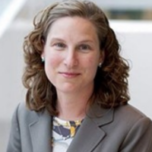
Charlotte Hudson is the Project Director of the Lenfest Ocean Program, a scientific grant-making program based at The Pew Charitable Trusts (Washington, D.C., USA), that funds research projects that address the needs of marine and coastal stakeholders and supports grantees to engage with the people most likely to use the results. She is responsible for identifying thematic areas of research and overseeing the design and implementation of research projects that include purposeful engagement with those who might use the research. She also oversees the engagement with and communication of research results in ways that inform policy decisions and promote the sustainable management of the ocean. Charlotte has co-authored many papers on the role of science, philanthropy and policy in decision-making. She received a bachelor’s degree in biology from Davidson College and a master’s degree in environmental management from the Nicholas School of the Environment at Duke University.
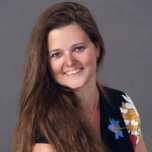
Evgeniia Kostianaia is the Global Coordinator of the UN Ocean Decade endorsed Programme for Early Career Ocean Professionals (“ECOP Programme”) and Consultant at the IOC/UNESCO. The goal of the Programme is to support Early Career Ocean Professionals in their capacity development and work by providing meaningful networking, training, professional development, funding opportunities and creating capacity for cooperation and knowledge exchange. Evgeniia is a marine environmental manager with research interests in marine pollution, ocean clusters, and connections between climate change and food security, and impacts of climate change on coastal tourism and railway infrastructure.
Evgeniia also acts as the Moscow Focal Point of the International Ocean Institute (Malta). She is a member of a working group on sustainable development of the Caspian Sea region and the Caspian Integrated Scientific Network (CASPISNET). Co-editor of a two-volume book “Plastics in the Aquatic Environment” (Springer, 2022).
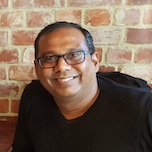
Andrick Lal, Pacific Islands Ocean Decade Collaborative Center (DCC).
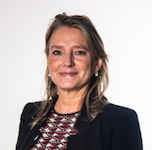
Ann-Katrien Lescrauwaet is currently director of International Relations at Flanders Marine Institute (VLIZ).
Ann-Katrien has over 35 years of experience in marine conservation, in Europe and South America. She has been actively involved in programmes in ocean research and innovation for sustainable management, working at the science-policy interface and the cooperation with the blue economy in the EU (European Union), in sea basins and in a global context. Her focus is on the linkages between Climate-ocean-biodiversity and society. At VLIZ she is currently coordinating the contribution to the Ocean Decade, as a co-chair of the Belgian National Decade Committee, and as a liaison with EU programmes such as ‘Mission Ocean and Waters 2030’, and in bilateral cooperation in ocean research in the Western Indian Ocean and in the Southeast Pacific. She is also appointed member of the Flanders (Belgium)-UNESCO commission. She is a strong supporter of Open Science and FAIR data and is committed to the principles of sharing research data and infrastructure to advance in ocean science in a context of equitable participation. She promotes human capacity development to put into practice the UNESCO vision to ‘leave no one behind’ in addressing the grand societal challenges.
Ann-Katrien holds a Masters’ degree in Marine Biology, a PhD in Marine Sciences from University of Gent (Belgium) and a degree in landscape management from University of Wales (UK).
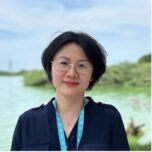
Li Li is the Director of International Cooperation Division at the First Institute of Oceanography (FIO), Ministry of Natural Resources, in China, which institute currently hosts the Decade Collaborative Center on Ocean Climate Nexus. Li is experienced in organizing international training events, activities and conferences, as well as managing and coordinating international scientific projects. She is also a marine geochemist and her research interest is in biogeochemical cycling processes of trace elements in marine system. She has led a number of projects founded by CNSF, COMRA, and MOST in China. She is currently the representative of China National Decade Committee.
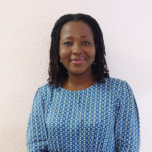
Edem Mahu is a Senior Lecturer of Marine Biogeochemistry at the University of Ghana. Her teaching and research span paleoclimatic and environmental reconstructions of marine ecosystems, marine pollution, conservation, and nature-based approaches to mitigating climate-induced coastal hazards. She currently leads the Oyster Reef Restoration and Conservation for Livelihood and Ecosystem Protection, and Mangroves as Nature-based Solutions to coastal hazards in Ghana projects. She is a fellow of the African Union/European Union ARISE Programme and the Royal Society FLAIR programme. She is a board member of the Partnership for Observation of the Global Ocean.
She is heavily involved in ocean science capacity development activities within Africa and has served as a co-organizer of the Coastal Ocean summer school in Ghana and Nigeria (COESSING) since 2015. She serves on the boards of four UN Ocean Decade-endorsed programmes, namely, CoastPredict, the Global Ocean Corps and Conveyor, EQUISEA, and the Ocean Best Practices System. Through the support of the National Geographic Society and other partner organizations, she is leading the University of Ghana to host the West Africa Marine Science Symposium. The symposium which aims to Foster Partnerships to Advance Ocean Science in West Africa is the first of its kind to be held in the Sub-region and has been endorsed as an activity of the Decade. Mahu is the recipient of the 2022 American Geophysical Union (AGU) Africa Award for Research Excellence in Ocean Science. She is passionate about mentoring the next generation of marine scientists in Africa and creating opportunities for early career ocean professionals on the continent.

Peter Pissiersens has been the Head of the IOC Project Office for IODE in Oostende, which is also the IODE Secretariat since 2007. Originally a marine biologist from the Free University of Brussels, Peter Pissierssens moved to Kenya in 1985 and developed the regional marine information network for eastern Africa (RECOSCIX-WIO). He also worked at UNEP Nairobi before joining the Intergovernmental Oceanographic Commission in 1989, again in Kenya. He moved to IOC headquarters in Paris, France in 1992, where he took on the marine information management activities for the IOC’s International Oceanographic Data and Information Exchange (IODE). In 2000 he took over as Head of IOC’s Ocean Services.
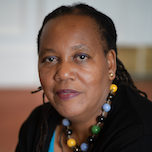
Jaqueline Uku, Chair of the African Ocean Decade Taskforce.
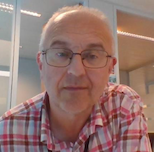
Gert Verreet, UNESCO/Flanders Funds-In-Trust for the support of UNESCO’s activities in the field of science (FUST). With several decades of work experience under the belt – most of it in international marine environmental protection settings – Gert Verreet is currently an Advisor in the Research Division of the Flemish Department of Economy, Science and Innovation (EWI), where he contributes to Flemish, national & international collaboration in environmental sciences. He is the Belgian Focal Point for the Unesco Intergovernmental Oceanographic Commission (IOC) and supervises / co-manages the use of resources from the Flanders Unesco Trustfund for the Sciences (FUST) that supports projects in the IOC and the Unesco natural science divisions (with activities in the Intergovernmental Hydrological Programme (IHP), Man & Biosphere Programme (MAB)).
He represents Flanders and Belgium in various European natural science cooperation settings related to marine and water research. He is the vice-chair of the Strategy Working Group Environment of the European Strategy Forum Research Infrastructures (ESFRI). He currently follows actively different European marine and water-related research cooperation mechanisms, such as JPI Oceans, Horizon Europe partnerships, the Mission Ocean & Waters.
